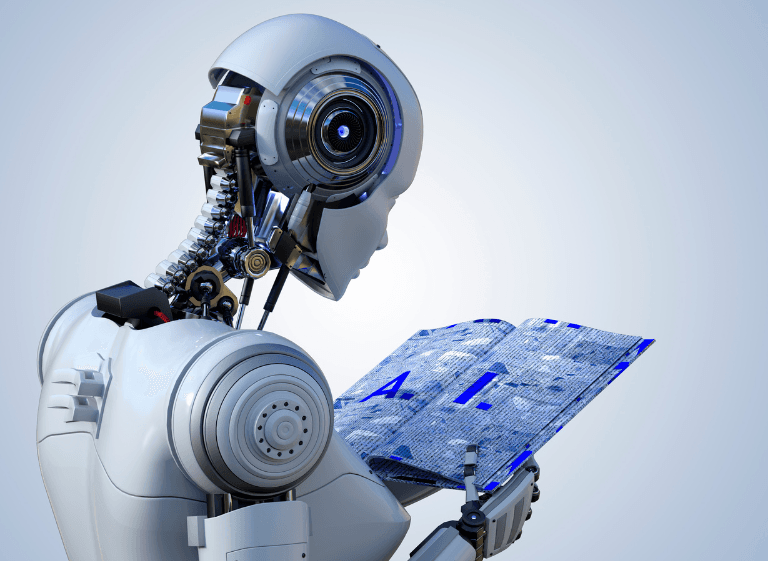AI tools
E-Commerce Solutions
UI/UX Design
Data analytics
Marketing strategies
Web development
Harnessing AI and Machine Learning to Transform User Experiences in E-Commerce Web Apps
Iliya Timohin
2025-01-24
The digital landscape of e-commerce is rapidly evolving, and at the forefront of this transformation are Artificial Intelligence (AI) and Machine Learning (ML).

1. Introduction: Why AI and ML Are Game-Changers in E-Commerce
Artificial Intelligence (AI) and Machine Learning (ML) technologies are reshaping how businesses interact with customers, offering unprecedented opportunities for personalization and efficiency. AI in e-commerce facilitates smarter decision-making, enhances user experiences, and drives sales growth. With machine learning, retailers can analyze vast amounts of data to create personalized shopping experiences, tailoring product recommendations to individual preferences. The benefits of AI in online retail extend beyond immediate sales; they also include improved customer satisfaction and loyalty, making AI indispensable for modern e-commerce.
2. Behavior Analytics: Understanding Your Customers Like Never Before
Understanding customer behavior is crucial for any e-commerce business, and AI-driven analytics provide insights like never before. By employing user behavior analytics, businesses can track and analyze how customers interact with their websites. AI algorithms can process this data to reveal patterns and trends, allowing for deeper customer insights. Furthermore, machine learning enables effective user segmentation, categorizing customers based on their behaviors, preferences, and buying patterns. This targeted approach allows retailers to tailor marketing strategies and product offerings, ultimately enhancing user experiences and increasing conversion rates.
3. Chatbots: The AI-Powered Solution for 24/7 Customer Support
One of the most significant advancements in e-commerce customer service is the implementation of AI chatbots. These intelligent systems provide round-the-clock support, addressing customer inquiries instantly, which is essential for enhancing customer experience. AI chatbots can handle a multitude of tasks, from answering frequently asked questions to guiding users through the purchasing process. By automating customer service, businesses can scale their operations without compromising on quality. Some of the best AI tools for chatbot integration include platforms like Dialogflow, Microsoft Bot Framework, and Chatfuel, which enable seamless chatbot deployment across various channels.
4. Content Automation: Scaling Personalization Without Extra Effort
AI-powered content automation is revolutionizing how e-commerce businesses create and manage content. With machine learning, businesses can dynamically personalize content based on user behavior and preferences. This means that each visitor sees a tailored shopping experience without the need for manual input. Automated content generation tools can produce product descriptions, recommendations, and marketing materials, significantly reducing the time and effort required for content management. The benefits of this approach include not only efficiency but also consistency and relevance in messaging, leading to higher engagement rates and improved sales.
5. AI Tools and Technologies for E-Commerce Developers
For developers looking to integrate AI into e-commerce applications, a variety of powerful tools and technologies are available. Some of the top AI tools for e-commerce development include TensorFlow, PyTorch, and Google Cloud AI. These platforms provide robust machine learning capabilities, enabling developers to build intelligent applications that enhance user experiences. Additionally, many e-commerce platforms, such as Shopify, are incorporating AI functionalities, making it easier for businesses to leverage these technologies without extensive technical knowledge. Understanding how to integrate AI into e-commerce websites is crucial for staying competitive in the rapidly evolving digital market.
6. Case Studies: Real-World Success Stories
Numerous businesses have successfully harnessed AI and machine learning to improve their e-commerce operations. Companies across various sectors have reported enhanced customer experiences and increased retention rates through the implementation of AI solutions. For instance, retailers utilizing machine learning for personalized recommendations have seen significant boosts in conversion rates. These success stories highlight the transformative power of AI in e-commerce, showcasing how data-driven insights can lead to informed decisions and targeted marketing strategies that resonate with customers.

7. Conclusion: The Future of E-Commerce Lies in AI
As we look ahead, the future of e-commerce is inextricably linked to advancements in AI and machine learning. Emerging trends suggest that AI will continue to play a vital role in personalizing user experiences, optimizing operations, and enhancing customer service. For businesses aiming to stay relevant and competitive in 2025 and beyond, integrating AI is not just beneficial; it is essential. By embracing these technologies, e-commerce businesses can create more personalized, efficient, and scalable solutions to meet the evolving demands of their customers, ultimately driving growth and success in the digital marketplace.
This article aims to educate developers and e-commerce businesses on how AI and machine learning can transform user experiences in web applications. By showcasing practical strategies, tools, and real-world examples, it empowers readers to implement personalized, efficient, and scalable solutions to meet the evolving demands of their customers.